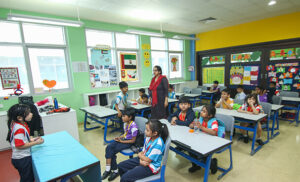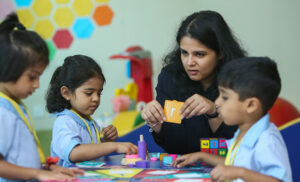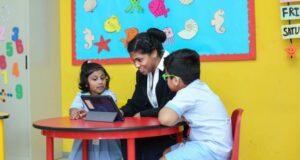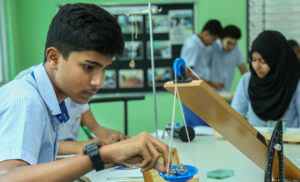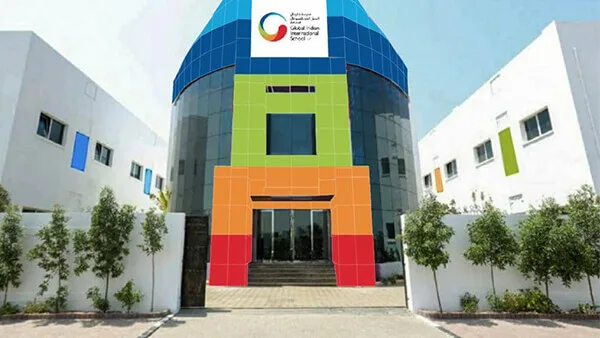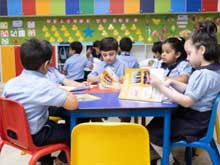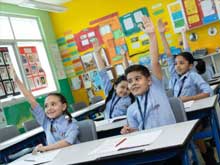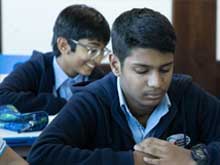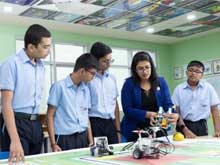Students often find it difficult to focus in class, the reasons being distractions in various forms. Sometimes, the struggle is about completing assignments on time, and sometimes it is about the presence of gadgets in class.
The difficulty to focus could also be due to the inability to comprehend what is taught in class or a lack of proper organization.
However, these problems can be solved with the right strategies implemented regularly. With the help of their parents’ or teachers’ guidance, high school students can overcome these difficulties, learn to make intelligent use of their gadgets, and learn to focus better in class.
Why Do Students Get Distracted in Class?
There are several reasons why students get distracted in class, below are some of the reasons:
1. Electronic Gadgets
The biggest culprit behind classroom distractions are the gadgets most students carry to school. These gadgets give students access to the internet and social media, both of which cause a disturbance. Smartphones, tablets, etc are so addictive that students find it difficult to let go of them.
Teachers at the schools in Abu Dhabi come up with strategies to check the applications and websites that are causing distractions and find ways to conquer those distractions.
2. Lack of Organization
Lack of proper organization also causes distractions. The student’s lack of preparation before coming to class not only distracts them but also their classmates. They may not carry their study material or they may not be up-to-date with their assignments. Either way, they can cause distraction.
3. Inability to Understand Study Material
Sometimes, students get distracted in class as they are unable to understand the topics discussed. When students fail to comprehend their study material, they tend to lose concentration, and as a result, distract others.
4. Learning Difficulties
Student distractions in class can also happen due to learning disabilities. Children suffering from Attention Deficit Disorder, Attention Deficit Hyperactivity Disorder, Dyslexia, or other such disabilities, suffer from constant distractions because of their conditions.
Such children will benefit from proper strategies that help tackle the issues and teach them as per their capabilities.
What are Examples of Distractions?
1. Online Games
The online gaming trend is now at its peak. Online gaming demands are increasing day by day. The varied online game applications cause distractions in classrooms, which is one of the factors affecting academic performance of students.
2. Social Media
Social media take up a major chunk of students’ time. These also affect them mentally and emotionally and lead to a disinterest in studies and school activities.
3. Entertainment Videos
Streaming services can be accessed on smartphones, too. This causes distraction to a great extent. And, as students can’t always be monitored or the content they access on their gadgets, it leads to constant distractions.
4. Use of Online Messaging Apps
Another example of classroom distractions is the conversations students have on their online messaging apps during lectures. This not only distracts those who use their devices, but also the other students present in class.
5. Irrelevant Learning
Students come across a lot of content on websites and blogs. Although some of it can be helpful, reading these during lectures can be distracting. It affects the learning that happens in the classroom and students often miss out on important points their teachers might share with them.
How Do Distractions in the Classroom Affect Learning?
Distractions have a huge negative impact on the students’ minds as well as their learning. Here’s how:
● Because of the distractions, learning takes longer and so does working on assignments. Constant distractions affect the students’ concentration span. They have to keep refamiliarizing themselves with the study material every time they get distracted.
● Due to this, the processing and storing of information in their brains get affected. This leads to knowledge that is less capable of extending to new and varied contexts.
● Switching between tasks caused due to distractions leads to mental fatigue. Different tasks need different ways to tackle them.
For example, the kind of language required to write an essay is different from that needed to reply to a friend’s message that pops up during study time. This back and forth can cause confusion in the students’ minds and affect their work output.
● This, in turn, affects the student’s memory, in the long run, and affects their academic performance.
Classroom distractions can be dealt with well-planned strategies being implemented regularly. Here are some valuable tips for students that will help them concentrate better in class.
10 Tips for Students to Minimize Distractions in the Classroom
1. Sit Away from Distractions
Sitting farther away from students who are talkative or prone to losing their focus will help avoid classroom distractions.
2. Maintaining an Organized Work Desk
Students should maintain their desks and keep them well-organized. Cleaning out their drawers regularly, organizing their books as per the daily schedule, arranging all their notes in a separate file, and discarding old notes or pieces of paper will help them concentrate better during lectures and avoid classroom distractions.
3. Sitting on the Front Benches
Students who tend to get easily distracted and disturb others can be asked to sit on the front benches. This way they will be able to concentrate during lectures, and listen and understand better, too.
4. Playing Games to Improve Focus
Students can play games to improve their focus. Jigsaw puzzles and crossword puzzles improve concentration, exercise the brain, and improve the problem-solving skills of students. These games are also calming and help students focus better in class.
5. Limit Access to Phones and Computers
Students should leave their smartphones at home, or on silent mode when in class. This will prevent the constant notifications from distracting them during their lectures and studies and improve concentration.
6. Breaks Between Study Sessions
Studying for long hours leads to a loss of focus. Hence, it is ideal to have short breaks between two study sessions. Students should indulge in some physical activity to burn off their energy.
7. The ABC Technique
Brain training helps avoid classroom distractions, too. Students can try this ABC technique that works like meditation.
● A – Awareness – recognizing the distractions.
● B – Breath deeply – think about what they can do about the distractions.
● C – Choice – choosing to mindfully ignore the distractions and focus on their tasks.
8. Try Different Strategies
Changing teaching strategies regularly during the lecture will make the lectures fun and interesting and prevent students from getting bored and distracted. Teachers can switch between instructions and group discussions during lectures to keep the students motivated.
9. Create Interest
Attention improves with interest. Encouraging students to talk about their likes, and sharing relatable information will also help them stay focused in class and avoid distractions.
Also Read: How to Motivate Your Child to Study?
10. Teaching Students About Attention Management
Talking to students about distractions and how they can be managed goes a long way in minimizing distractions in classrooms. Strategies to avoid distractions and implement them will encourage students to focus better and learn to ignore distractions.
Why is Managing Distractions Important?
Classroom distractions affect the productivity of students and increase their stress levels. Knowing what causes distractions will get students the help they deserve.
It will also prevent others from getting distracted during class hours, all of which will improve the atmosphere of the class and the performance of every student.
Frequently Asked Questions
1. How can students identify distractions in the classroom?
Students can identify distractions in the classroom by noticing things like phone use, side conversations, or outside noise. Focusing on the teacher and lesson content helps minimize distractions in the classroom.
2. Is it helpful for students to set specific goals to avoid distractions?
Yes, setting specific goals can help students avoid distractions. Clear goals provide focus and motivation, reducing the likelihood of getting sidetracked. Establishing a plan can also enhance time management skills.
3. How can I focus 100% on studying?
To focus 100% on studying, create a designated study space, set clear goals, use time-blocking techniques, take breaks, and avoid distractions like social media or noisy environments.
4. What role do teachers play in managing distractions?
Teachers play a crucial role in managing distractions by creating engaging lessons, providing a structured environment, and offering support to students. They help minimize distractions in students’ lives by fostering focus and discipline.





